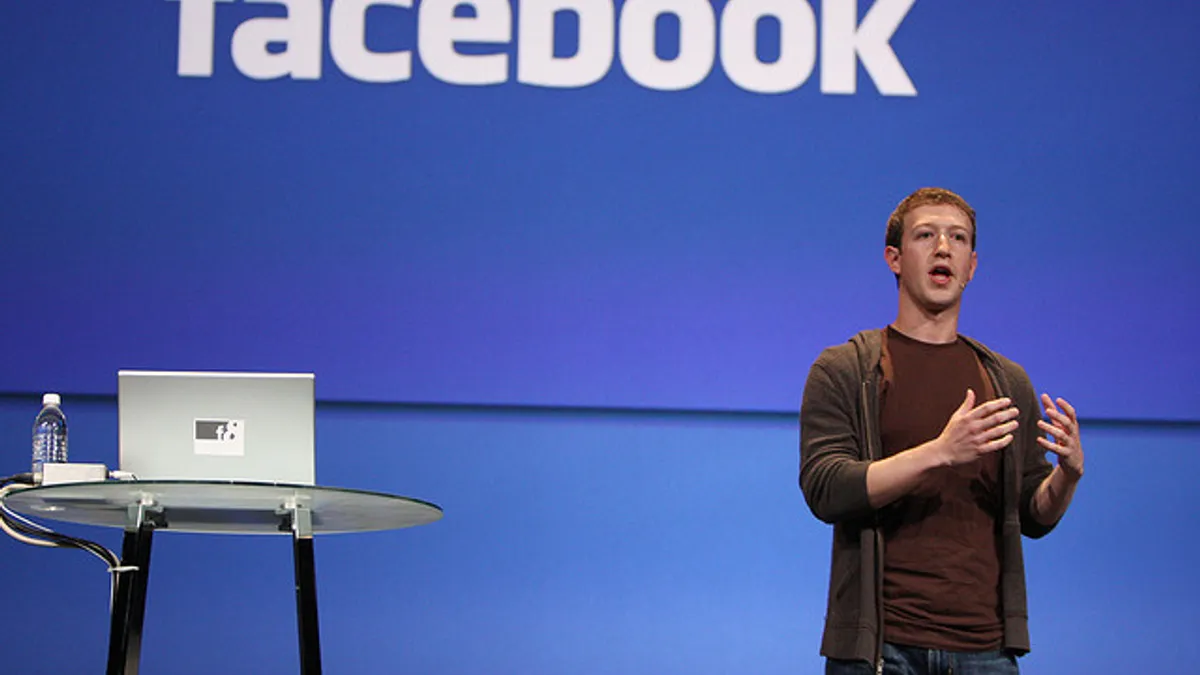Dive Brief:
- Facebook is removing illegitimate news sites from its Audience ad network, according to The Wall Street Journal. The company has recently come under fire for allowing the dissemination of politically charged false reports and hoaxes in News Feed. The concern is that inaccurate stories — some of which went viral — influenced the election and potentially helped the Trump campaign.
- According to Gizmodo, Facebook did not stopper fake or inaccurate reports for fear of appearing to have an anti-conservative bias. Facebook declined to address Gizmodo's direct questions about the handling of News Feed in an email statement.
- The Journal reports that the move from Facebook follows Alphabet's Google, which announced plans Monday to prevent ads from being placed "on pages that misrepresent, misstate, or conceal information about the publisher, the publisher’s content, or the primary purpose” of their sites.
Dive Insight:
Zuckerberg has long insisted Facebook is a tech company, not a media company, but the claim rings more hollow than ever with critics post-election. According to Gizmodo, even some within Facebook have been internally torn about how to tackle the spread of misinformation since May, and are now finally weeding out bad news sites from the Audience Network despite Zuckerberg's claims his company had no fault.
Gizmodo pointed to industry research that suggests 44% of people in the U.S. get their news from Facebook, making it the largest distributor in the country. Over the weekend, Facebook CEO and founder Mark Zuckerberg denied his company had a significant role to play in influencing the election.
The controversy is indicative of how Facebook has often struggled with acting as a sort of publisher — the site has frequently received flak for the handling of things like Trending Topics — but it's an issue many tech companies, including Alphabet, also grapple with. The Journal notes that one of the top Google searches regarding the election until recently was a no-name Wordpress blog riddled with inaccuracies — including that President-elect Trump won the popular vote.
Now that it has been suggested that the promotion of similar false stories potentially had significant ramifications leading up to the election, questions arise over how much responsibility Google and Facebook have in combating bad media going forward.
Cutting off revenue streams from ad networks is an intuitive first step, but won't necessarily prevent misinformation from going viral. It also won't stop the inevitable accusations of bias, but that might be a necessary hit to take given the significant role Google and Facebook increasingly play in how users stay informed for their day-to-day.














